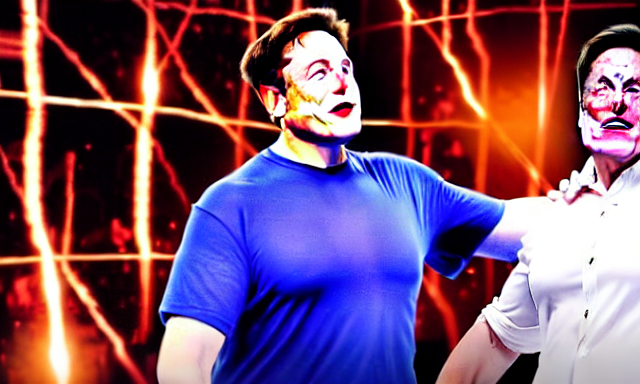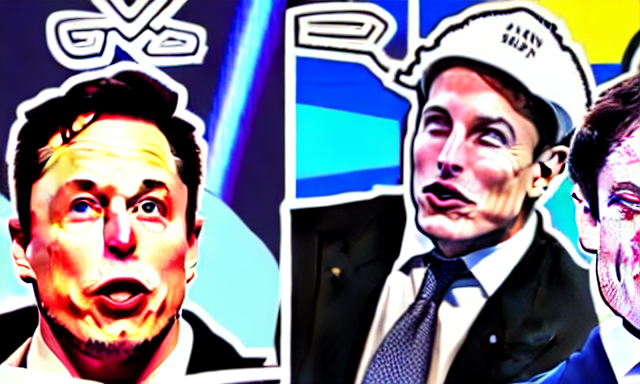
In an unprecedented collaborative legal move, tech moguls Elon Musk and Mark Cuban have joined forces to challenge the U.S. Securities and Exchange Commission’s (SEC) trial procedures. Along with others, they have submitted a shared amicus brief to the Supreme Court, raising concerns over the SEC’s method of conducting internal proceedings without the inclusion of juries1234.
Mark Cuban, a billionaire known for his ventures in cryptocurrency and decentralized finance (DeFi), and Elon Musk, the enigmatic CEO of Tesla and SpaceX, are spearheading this legal challenge. Both have quite a stake in the financial and tech spheres, thus their move against the SEC’s trial strategies carries significant weight. The duo argues that the SEC’s current administrative proceedings produce disparate outcomes for individuals facing SEC charges, which, according to them, infringe upon the U.S. Constitution’s Seventh Amendment right to a jury trial5.

The legal challenge arises in the context of the SEC vs. Jarkesy case, where George Jarkesy argued that his Seventh Amendment rights were violated due to the SEC’s internal adjudication process. This process, lacking a jury and overseen by an administrative law judge appointed by the commission, effectively places the roles of judge, jury, and enforcer into a single entity. Musk, Cuban, and other amici curiae (friends of the court) highlight a notable shift in the SEC’s approach between 2013 and 2014, where the SEC started handling more cases internally rather than through federal courts. This change occurred following a series of unsuccessful insider trading cases tried before juries5.
This isn’t Musk’s first tango with the SEC; he’s facing his third notable legal dispute with the financial regulatory agency. Amidst this legal challenge, the SEC is currently pursuing the involvement of a federal court to request Musk’s testimony regarding his acquisition of Twitter. Nonetheless, the amici curiae maintain a steadfast position, contending that opting for administrative proceedings over the option of federal court juries runs counter to the SEC’s stated mission, potentially impacting investors and the markets negatively5.

The potential implications of this legal challenge are profound and could set a new precedent in how the SEC conducts its trials. Should the Supreme Court uphold the challenge posed by Musk, Cuban, and others, this might not only vindicate those arguing for a fairer trial process but could also have a rippling effect across the financial regulatory framework, particularly benefiting cryptocurrency platforms in defending themselves against the SEC1.
Furthermore, the collaboration between two such influential figures in the tech and financial realms underscores a significant moment of unity against perceived unjust regulatory practices. It’s a rallying cry for a more transparent and fair judicial process within the financial regulatory system. This case exemplifies the growing tension between innovative entrepreneurial ventures, especially in the crypto space, and regulatory bodies. It also reflects a broader discourse on the balance between regulatory oversight and entrepreneurial freedom.
The intricacies of this legal challenge shed light on the continuous struggle for a just and equitable financial regulatory landscape. As the narrative unfolds, it’s bound to capture the attention of stakeholders in the legal, financial, and technological sectors, awaiting to see how this clash between tech magnates and regulatory behemoths will play out on the grand stage of the Supreme Court.
The legal fraternity and the investment community are keenly watching the developments in this case, as it could potentially redefine the boundaries of regulatory enforcement. Amidst a rapidly evolving financial landscape, driven by blockchain technology and the proliferation of decentralized financial platforms, the outcome of this challenge could significantly influence the future trajectory of regulatory frameworks.

The alliance of Musk and Cuban in this legal endeavor reflects a burgeoning resistance against what they perceive as overreaching regulatory practices. As the SEC continues to navigate the complex and often contentious relationship with the burgeoning tech and crypto sectors, this legal challenge symbolizes a momentous occasion where the realms of law, finance, and technology intersect, striving for a more just and balanced regulatory ecosystem.
With the world’s eyes on them, Musk and Cuban are not just challenging the status quo; they’re advocating for a reformation that aligns with the principles of fairness and justice. This legal saga is more than a mere courtroom battle; it’s emblematic of the broader dialogue on the evolving relationship between innovation, regulation, and the quest for a more equitable financial domain.
By ChatGPT prompted by davedigital